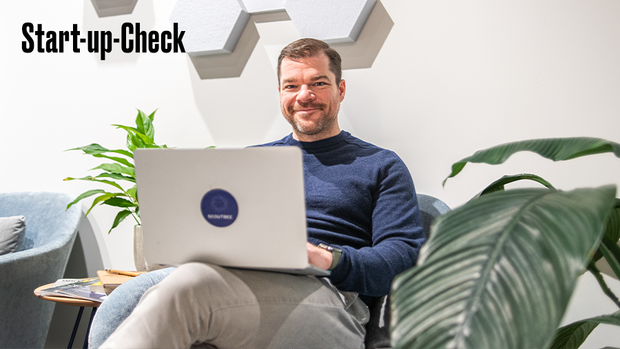Berlin The pandemic has severely disrupted global supply chains, and supply bottlenecks are repeatedly slowing down the German economy. The business model of Gregor Stuhler’s start-up Scoutbee starts right there – to make supply chains more resilient and efficient. And that long before the corona crisis.
Scoutbee uses artificial intelligence (AI) to help other companies organize their own supply chains and find new suppliers. “One of our customers was able to enter the hand disinfectant business in the middle of the corona crisis, while others could no longer deliver anything at all due to a lack of ingredients,” says Stuhler, giving an example.
Large customers such as Unilever, Audi, Siemens and Linde now rely on the AI software from the Würzburg start-up. The company is backed by well-known venture capitalists such as Atomico and HV Capital.
Two crises provided the impetus for the business idea: the nuclear disaster in Fukushima triggered by a tsunami on the one hand, and concerns about a shortage of the rare earth materials of the future on the other. At the time, the natural disaster had a major impact worldwide, including on delivery routes and production.
It showed Gregor Stuhler how important functioning supply chains are: “Large international corporations such as Siemens or Walmart sometimes have up to 250,000 suppliers.” And organizing them is not just about minimizing susceptibility to failure. It’s also about potential: “Companies often don’t even know what their suppliers are capable of,” says Stuhler.
With artificial intelligence (AI), the start-up helps other companies organize their own supply chains and find new suppliers.
(Photo: Scoutbee)
To change that, he founded Scoutbee in 2015 with Lee Galbraith, Fabian Heinrich and Christian Heinrich. Electrical engineer Stuhler now runs the company alone. To date, Scoutbee has raised $76 million from investors in three rounds of funding.
>> Read also: Where’s Watson? How IBM took the lead in AI – and gambled again
The majority comes from the last financing round in early 2020, in which Atomico also came on board. Before Scoutbee, many companies, regardless of size, relied on the manual screening of potential suppliers and not on AI-supported research, says Atomico partner Luca Eisensteck.
Scoutbee now offers customers the opportunity to better map existing delivery networks in order to be able to make more efficient purchasing decisions. This also saves costs. Scoutbee also helps find new suppliers. The business is based on a subscription model, which is based either on the number of linked data and suppliers or the number of supplier search ads.
How are the chances?
Scoutbee relied on trends such as machine learning and the use of big data early on, says HV Capital partner Jan Miczaika. That is why the lead of the start-up is very large. However, the young company has already been through a lot in the past eight years.
Business was difficult, especially during the corona crisis, because, according to Stuhler, “nobody had time to digitize purchasing” and the money went more into marketing and sales than into procurement. This also led to job cuts. The number of employees shrank from more than 120 in the meantime to currently 80.
According to Stuhler, things are currently going much better again. Despite the economic weakness and financing difficulties for many start-ups, Stuhler has set himself ambitious goals for the current year: He wants to triple sales.
However, he does not give a specific number. Such a leap in growth should also give Scoutbee a good basis for negotiation in discussions with investors, the next round of financing is planned for early 2024 at the latest.
>> Read also: AI floods the internet: Spotify is deleting tens of thousands of songs over suspected fraud
In order to get off to a good start, Stuhler also has to play a leading role when it comes to AI: “We see enormous potential for our customers in that they use chat interfaces to access their existing supplier data.”
However, ChatGPT is not the ideal solution for corporate customers, which is why Scoutbee runs generative AI models with its own infrastructure. This way you are able to isolate customer information from each other and protect data better.
What’s next?
Grand View Research estimates the global market for procurement services at more than six billion US dollars, says EisenStetten. This in combination with the current AI boom is a huge growth opportunity for Scoutbee.
However, the competition is also getting tougher: while Scoutbee only fought for the budgets of corporate customers with consultants such as McKinsey and Deloitte for a long time, there are now other start-ups that are active in this area. Prewave from Vienna recently received 19 million euros from investors such as venture capitalist Creandum. Prewave also takes care of supply chain risk management.
More: More start-up checks can be found here.
